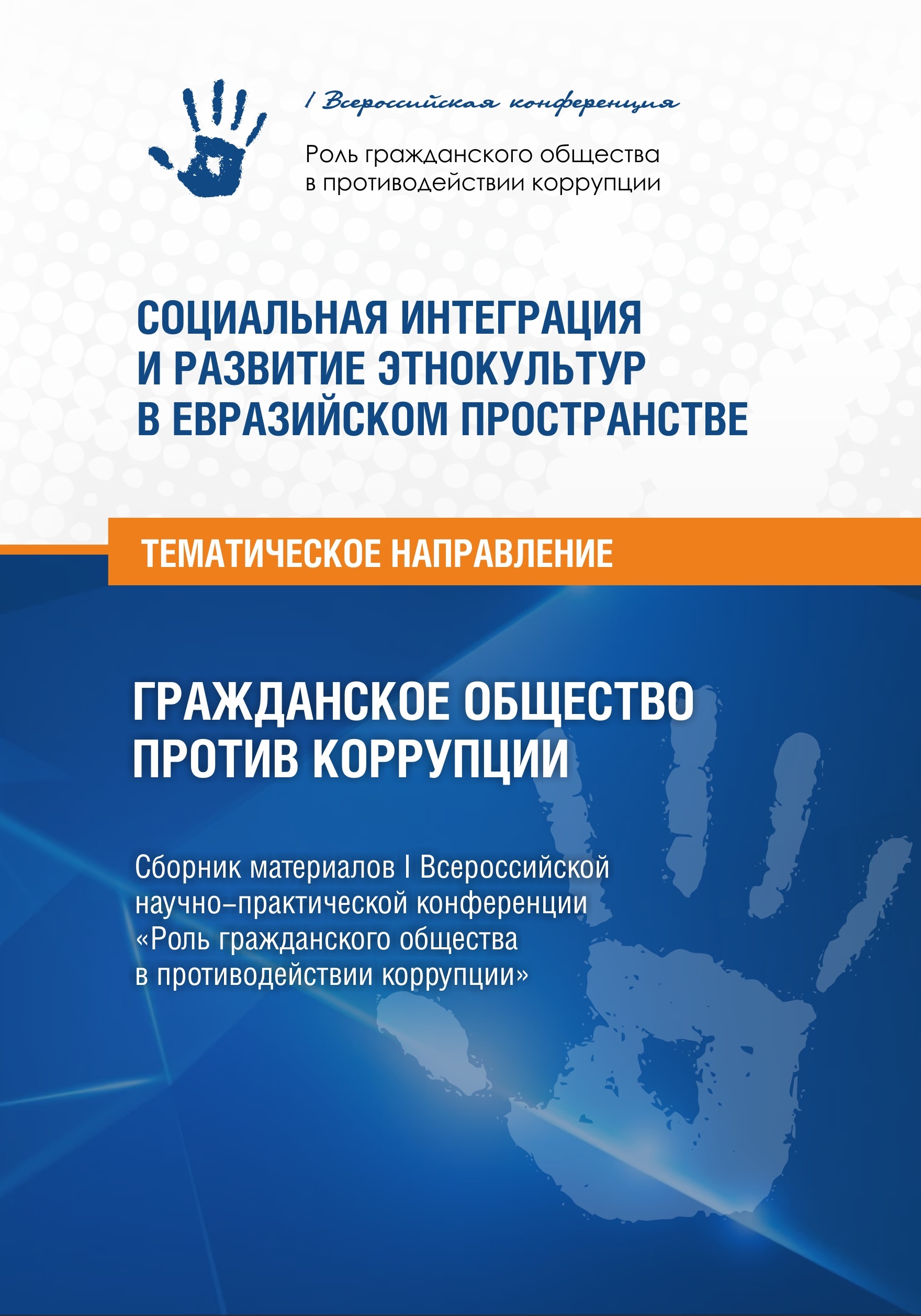CORRUPTION AS A TOPIC OF THE NEWEST SCIENTIFIC RESEARCHES
Main Article Content
Abstract
The article reveals the importance of the expanding the scope of the research on the corruption in the connection with a narrow set of the tools and the anti-corruption mechanisms used in modern Russia. On the basis of the summarizing the results of the research by Russian and the foreign scientists, the attention was paid to the such areas as the corruption in the conducting public financial audits and the need to develop an independent public examination of the financial activities of the state and the enterprises, auditing compliance with the constitutional rights of the citizens, the contagiousness of the corruption and preventing its spread and the actions informants in the every organization and also the increasing the participation of the women in Russia who are independent of their husbands, in the senior positions in the state legislative and executive bodies.
Downloads
Article Details

This work is licensed under a Creative Commons Attribution-NonCommercial-NoDerivatives 4.0 International License.
References
Растова Ю. И. Общенаучные системные представления и экспертные оценки инвестиционных процессов в реальной экономике //Проблемы современной экономики. 2004. № 1–2 (9–10). С. 70–72.
Растова Ю. И. Экспресс-анализ коммерческой состоятельности инвестиционных проектов // В сборнике: Экономические реформы и совершенствование системы управления на предприятиях Казахстана и России: Материалы конференции. 2001. С. 114–115.
Растова Ю. Т., Боговиз А. И. Независимая экспертиза в управлении инвестиционной деятельностью в реальном секторе экономики // Научно-технические ведомости СпбГТУ. № 4. 2005. С. 191–195.
Румянцева Е. Е. Антикоррупционная политика и поведение гражданского общества. Saarbrücken: Palmarium, 2015. 145 с.
Румянцева Е. Е. Национальные традиции в российском предпринимательстве и зоны их риска // В сборнике: XXIV Международные Рождественские образовательные чтения. М., 2016. С. 25–30.
Румянцева Е. Е. Право, нравственность, эффективность и неформальные отношения при коррупционном управлении: история и современность // Проблемы теории и практики управления. 2016. № 12. С. 134–142.
Румянцева Е. Е. Проблема аудита соблюдения прав студентов с ограниченными возможностями здоровья // В сборнике: Развитие инклюзивного высшего образования в Сибирском федеральном округе: Сборник трудов I Всероссийской научно-практической конференции. 2018. С. 234–238.
Cooray A., Dzhumashev R. The effect of corruption on labour market outcomes // Economic Modelling. Volume 74, August 2018, P. 207–218
Debski, J., Jetter M., Mösle S., Stadelmann D. Gender and corruption: The neglected role of culture // European Journal of Political Economy, Volume 55, December 2018, P. 526–537
Nekovee М., Pinto Е. Modelling the Impact of Organization Structure and Whistle Blowers on Intra-Organizational Corruption Contagion // Physica A: Statistical Mechanics and its Applications. November, 2017.
Jha C.K., Sarangi S. Women and corruption: What positions must they hold to make a difference? // Journal of Economic Behavior & Organization. Volume 151, July 2018, Pp. 219–233
Liu J., Lin B. Government auditing and corruption control: Evidence from China’s provincial panel data // China Journal of Accounting Research. Volume 5, Issue 2, June 2012, Pp. 163–186

